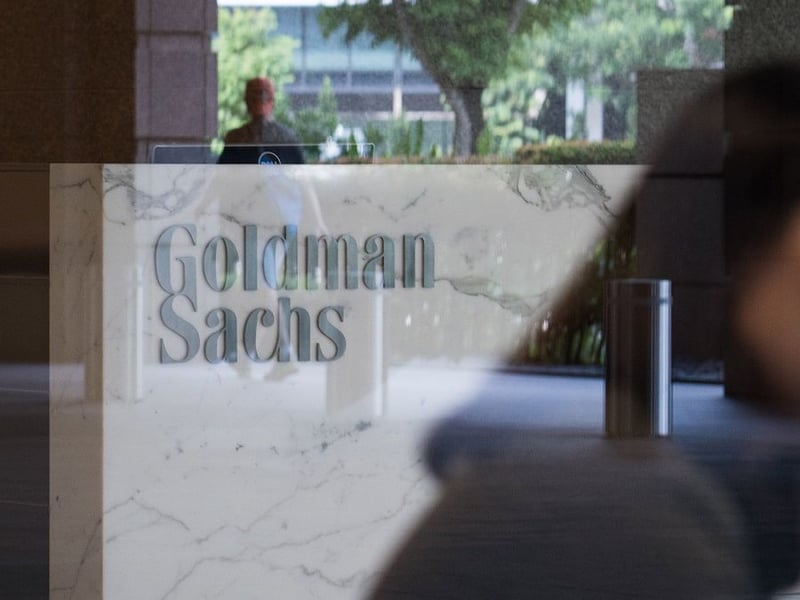

Goldman Sachs has made its entrance into the robo-advice space official with the debut of its low-cost digital investing platform for the masses, called Marcus Invest, as one of the last major firms to enter the retail digital advice market.
The Wall Street bank raised the curtain on Marcus Invest, letting the public meet the new robo-adviser via its website on Tuesday. The investment offering lives under Goldman’s existing consumer-facing banking app Marcus by Goldman Sachs, joining other offerings such as savings accounts, unsecured personal loans and budgeting software.
The public launch of Marcus Invest solidifies the bank’s goal to bring the investing expertise of Goldman Sachs — which used to be reserved for the ultra-wealthy, defined as investors with more than $10 million of investible assets — to a wider audience of consumers.
Now, investors can open an account on the mobile app for a minimum of $1,000. Marcus Invest charges an annual advisory fee of 0.35%, which covers all trade commissions and transfer fees, plus daily monitoring, rebalancing and ongoing management.
Marcus Invest is designed to manage portfolios of exchange-traded funds based on models designed by Goldman Sachs Investment Strategy Group.
The product also offers both individual and joint investment accounts, as well as three types of individual retirement accounts: Traditional IRA, Roth IRA and Simplified Employee Pension Plan IRA.
Goldman’s product is priced competitively, matching Morgan Stanley, Wells Fargo, and JP Morgan Chase, which all offer digital advice for 0.35%, said David Goldstone, head of research for Backend Benchmarking. "While Goldman’s pricing structure that rebates the expense ratio of proprietary funds held in the portfolio may give them a slight price advantage over some competitors, others like Fidelity Go and JP Morgan Chase You Invest Portfolios have similar pricing where the 0.35% management fee represents an all-in cost," he said.
Fidelity also offers free management for clients with less than $10,000 on the platform, he said. Meanwhile, Wealthfront and Betterment offer their digital-only products at 0.25%, and Vanguard Digital Advisor carries cost capped at 0.20%.
Also, Goldman’s entrance into robo-advice is late, but Chief Executive David Solomon isn’t concerned that the launch of its first digital advice platform will be outshined by well-established fintech apps already dominating the market. Solomon said during Goldman Sachs’ fourth-quarter earnings call in January that the broader product offerings and scale that Goldman Sachs has to offer will keep it ahead of the curve.
Moreover, Marcus Invest will also expand to the U.K. in the second half of the year, Solomon said. Goldman Sachs’ more global reach, too, is expected to push its robo-adviser to the head of the pack.
“It’s increasingly difficult to compete in this business unless you’re global at scale,” Solomon said. “Unless you have the capacity to make very significant technology investments into platforms to better connect with your clients, so there has been consolidation of wallet share into the leader players across these platforms.”
The arrival of Goldman’s new robo-adviser has been long overdue. The bank announced in May it had scrapped plans to launch a digital wealth offering in 2020, delaying its ambitious push into the mass-affluent marketplace.
In 2018, Goldman restructured its four-year-old online bank Marcus to streamline operations. The firm hoped the addition of a robo-adviser would help it transform from an elite bank for the ultra-wealthy to more of a digital platform with an eye toward Main Street investors.
While robo-advice may not be core to the Goldman Sachs strategy, it would provide an outlet for the distribution of Goldman funds. A handful of other asset managers have purchased digital platforms in recent years in part to offer proprietary funds to a larger swath of retail investors.

Executives from LPL Financial, Cresset Partners hired for key roles.

Geopolitical tension has been managed well by the markets.

December cut is still a possiblity.

Canada, China among nations to react to president-elect's comments.

For several years, Leech allegedly favored some clients in trade allocations, at the cost of others, amounting to $600 million, according to the Department of Justice.
Streamline your outreach with Aidentified's AI-driven solutions
This season’s market volatility: Positioning for rate relief, income growth and the AI rebound
